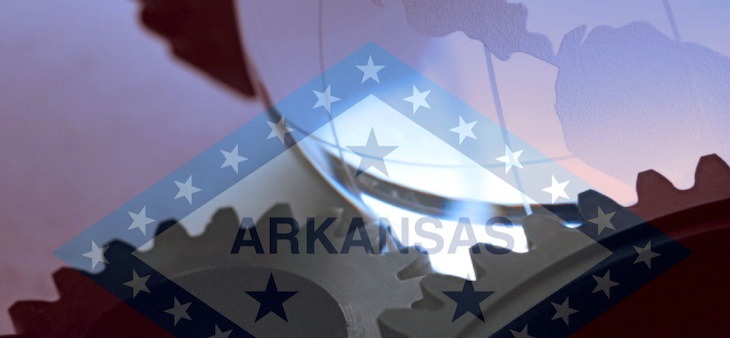Foreign direct spending in U.S. falls 38% under threat of trade wars
by July 17, 2018 5:55 pm 445 views

As the Trump administration enters a new era of trade relations with key allies and long-term trading partners, new data shows spending by so-called foreign direct investors in American businesses fell 32% in 2017 as overseas companies are pausing or pulling out of U.S.-based projects.
In a new report from the Commerce Department’s Bureau of Economic Analysis (BEA), expenditures by foreign direct investors to acquire, establish, or expand U.S. businesses totaled $259.6 billion in 2017, down 32% compared to $379.7 billion in 2016 and well below the annual average of $359.9 billion for 2014-2016 when acquisitions of existing businesses accounted for a large majority of total spending.
In 2017, outlays for acquisitions were $253.2 billion, expenditures to establish new U.S. businesses were $4.1 billion, and spending to expand existing foreign-owned businesses were $2.4 billion. Planned total expenditures, which include both first-year and planned future expenditures until completion for projects initiated in 2017, were $278 billion.
Expenditures in manufacturing accounted for 40% of total expenditures at $103.7 billion, the largest share among major industries. The largest investing country was Canada at $66.2 billion, followed by the United Kingdom ($40.9 billion), Japan ($34 billion), and France ($23.1 billion). By region, Europe contributed 40% of the new investment in 2017.
FDI SPENDING IN ARKANSAS UP 42%
The Washington, D.C.-based Organization for International Investment (OFII), which represents privately-held foreign companies with U.S. operations, recently reported that first-quarter 2018 foreign direct investment (FDI) flows in the United States were below average for the past few years at $58 billion, while full-year 2017 spending was revised upward to $292 billion.
OFII President and CEO Nancy McLernon said in a May 29 statement that a trade war sparked by tariffs threaten growth in the U.S. manufacturing sector.
“I don’t see how a Toyota Prius or BMW X3 are a threat to U.S. national security. … But what is clear is the incredible impact that global automakers are having in places like Indiana, Ohio, Michigan, Texas, and South Carolina,” McLernon said. “Not only have these manufacturers far outpaced the overall industry in terms of U.S. job growth in the past five years, they spent nearly $30 billion on U.S.-based research and development, and offer an average of more than $70,000 in wages and benefits to their U.S. workers.”
In several speeches over the past year about Arkansas’ fast-growing economy and low unemployment, Gov. Asa Hutchinson has highlighted OFII’s annual report showing that Arkansas’ foreign direct investment has grown by 41.5% of the past five years, nearly double the national average.
According to OFII data, foreign-based companies like ABB, Denso, Nestlé and L’Oréal employ 46,400 Arkansans. Of that total, more than 60% of the globally-connected jobs are in the state’s manufacturing sector with pay 44% higher than the state’s private-sector average.
A year ago, Gov. Hutchinson issued the state’s first Open Investment Policy statement with OFII, acknowledging the importance of cross-border investment for Arkansas’ economy and committing state to treating foreign employers in a fair and equitable manner.
“Arkansas’ economy and workers have benefited from foreign direct investment as we are a national leader in FDI job growth,” said Hutchinson. “(This) proclamation will help expand Arkansas’ brand to employers around the world. L’Oréal has become part of our community and is an example of the manufacturing jobs in which our state excels.”
FDI COMPETITION
Although the U.S. still maintains its number position in the world as the top destination for foreign direct investment, the OFII and Department of Commerce reports show that U.S. is facing stiffer global competition for new investment dollars. In 2016, the U.S. accounted for 24% of the world’s inward stock of foreign direct investment compared to 37% in 2000. In 2010, the United States’ share of global FDI had fallen to only 17%, but international investment has since rebounded as more foreign manufacturers are increasing locating manufacturing facilities and auto plants across the fast-growing Southeast U.S.
Last week, Arkansas State Chamber of Commerce/Associated Industries of Arkansas CEO Randy Zook said trade policies need correcting, but there will be pain for some of the state’s business interests.
“At this point, we’re sticking with him [President Trump] on faith because there’s no question that trade practices are out of whack. There’s no question that the United States gets rookie-dooed… on every corner in trade relationships. Our products get to pay high tariffs going into other markets, our intellectual property is stolen at will by Chinese manufacturers. I mean, we are just the world’s piñata in terms of trade practices,” said Zook.
The state Chamber chief also said he hoped the tariff battle with China specifically would not result in any cancelled deals in Arkansas. There have been five announcements of Chinese investment in Arkansas during Hutchinson’s administration. However, three Chinese manufacturers from the Shandong Province that announced plans to locate in Arkansas following one of Gov. Hutchinson’s frequent Far East trade missions have not yet moved out of the development stage.
